This article explains how to enable or disable cloud content search from apps in Windows 11.
In Windows 11 build 26100.3624, Microsoft is introducing an enhanced Windows Search feature that simplifies finding documents, photos, and settings on Copilot+ PCs.
This improvement is supported by semantic indexing models and traditional lexical indexing. You no longer need to remember file names, exact words, or settings.
Locating your photos stored and saved in the cloud is simpler on Copilot+ PCs. You can use your words in the search box at the upper-right corner of File Explorer, like “summer picnics”.
The steps below walk you through enabling or disabling the new app cloud search feature.
Enable/Disable Cloud Search from Apps
Windows 11 now features a search function for cloud content within apps, making it easier to access your documents, photos, and settings on Copilot+ PCs.
Here’s how to do it.
First, open the Windows Settings app.
You can do that by clicking on the Start menu and selecting Settings. Or press the keyboard shortcut (Windows key + I) to launch the Settings app.
When the Settings app opens, click the Privacy & security button on the left. Then, select the Search Windows tile on the right to expand it.
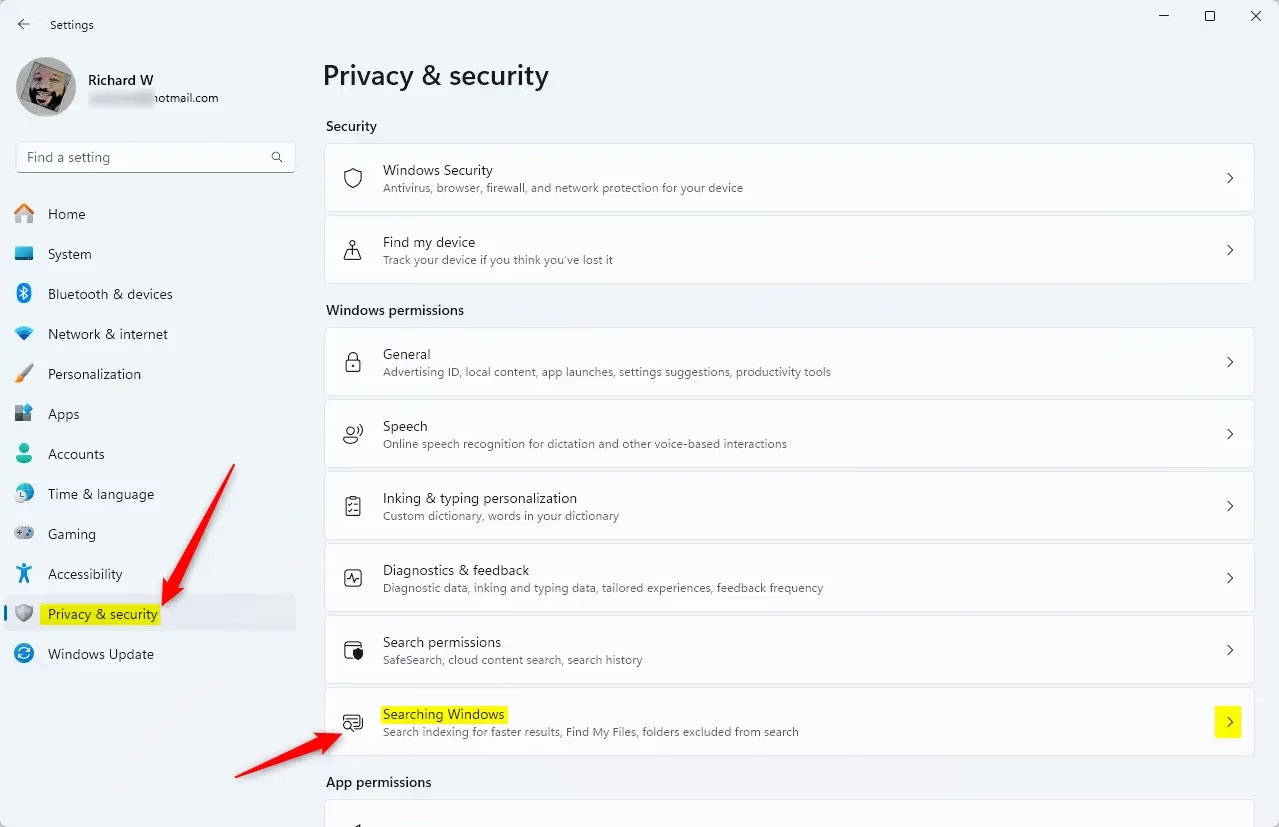
On the Privacy & security > Search permissions settings page, toggle the button on the “Enable deep content search of cloud content” tile to enable or disable it.
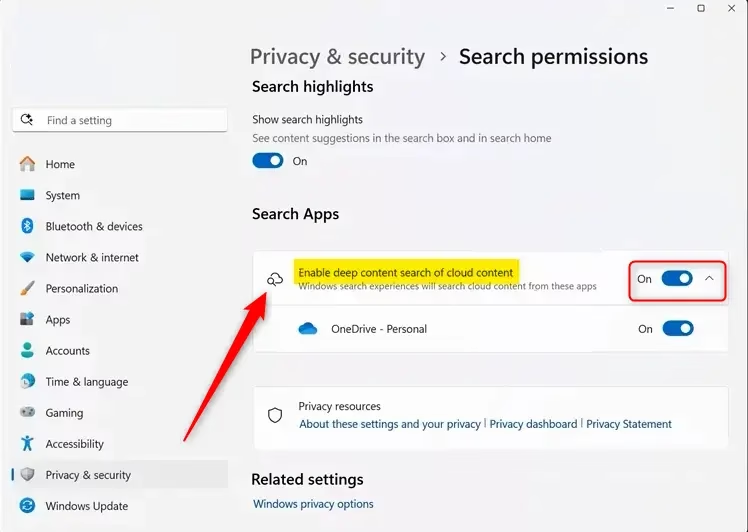
Close the Settings app when finished.
Enable/Disable Deep Cloud Content Search
Another method to enable or disable the new deep cloud content search feature is to use the local Group Policy Editor.
First, open the Local Group Policy Editor (gpedit.msc). (Search for “Edit group policy”) on the Start menu.
Then, navigate the folders below:
Computer Configuration>Administrative Templates>Windows Components>Search
In the Search details pane on the right, locate and double-click the “Allow Cloud Search” settings.
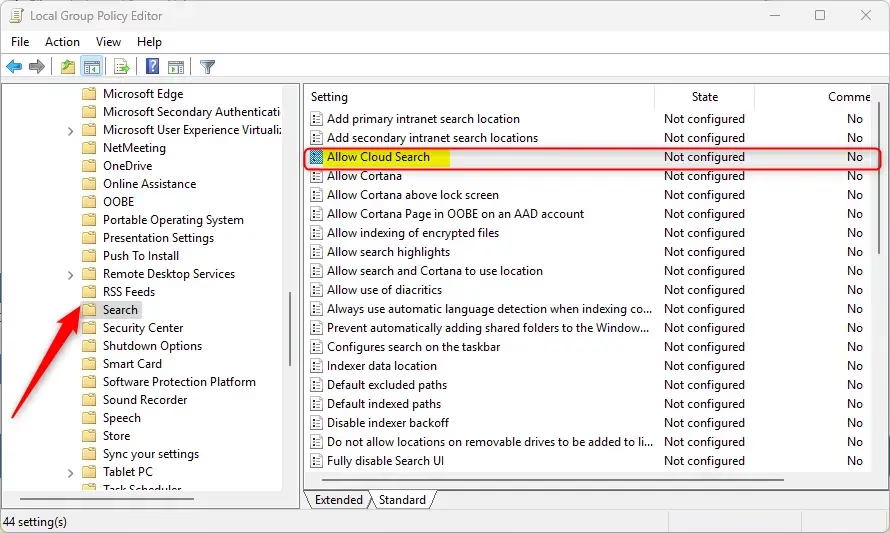
On the “Allow Cloud Search” window, set the option to Not Configure, Enabled, or Disabled.
- Not Configured (default)
- Enabled:
- Disable Cloud Search
- Enable Cloud Search – Allow search and Cortana to search cloud sources like OneDrive and SharePoint.
- User Selected
- Disabled: Disable Cloud Search.
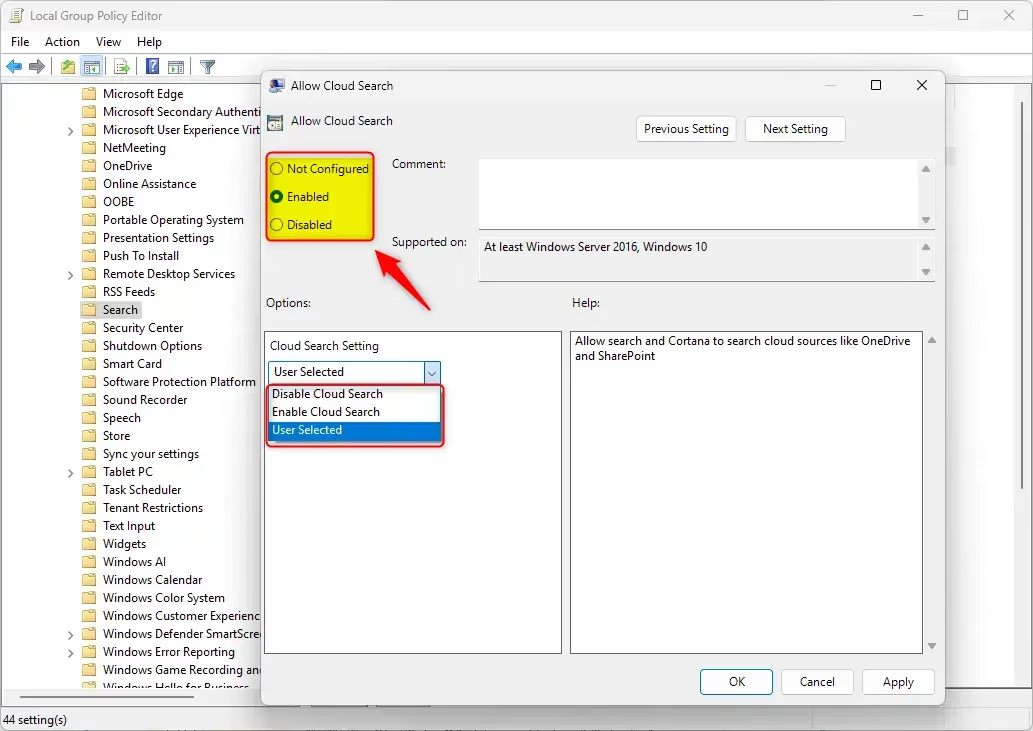
Click OK to save your changes.
Enable/Disable Cloud Search using the Registry Editor
Yet another way to enable or disable the new Cloud Search feature is to use the Windows Registry Editor.
Remember to back up your registry before making any changes, or create a System Restore point as a precaution.
First, open the Windows Registry and navigate to the folder key path below.
Computer\HKEY_LOCAL_MACHINE\SOFTWARE\Policies\Microsoft\Windows\Windows Search
Right-click Windows Search > New > DWORD (32-bit) Value and name the new DWORD AllowCloudSearch.
Double-click and open the AllowCloudSearch name and set the value to 1 to enable the Cloud Search feature for all users.
Enter 0 to disable it for all users.
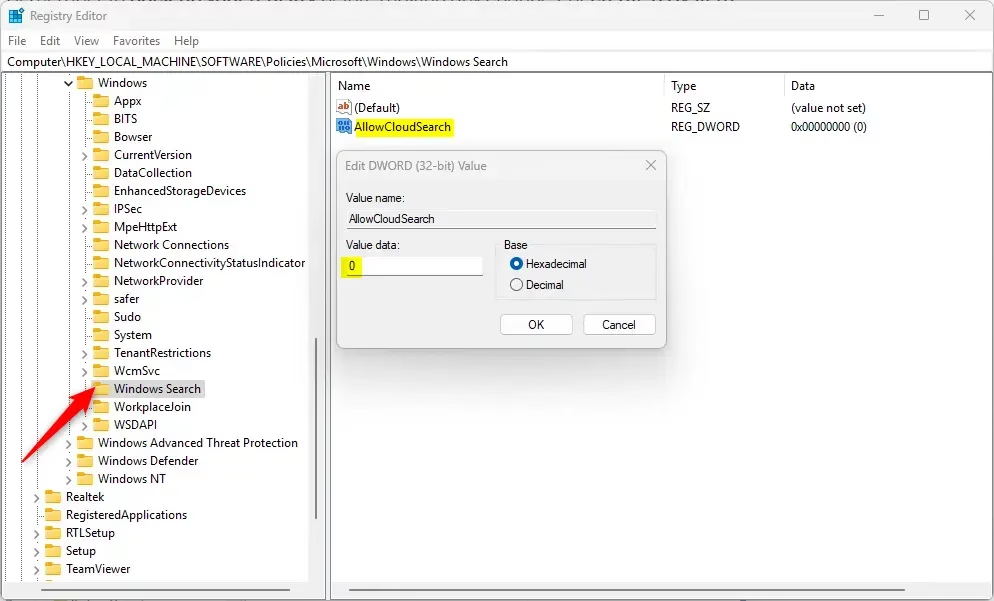
If you want to use the feature and revert Windows to its original settings, delete the [AllowCloudSearch] item created earlier.
AllowCloudSearch
You may have to reboot your computer to apply the changes.
That should do it!
Reference:
Conclusion:
- The enhanced Windows Search feature in Windows 11 simplifies finding documents, photos, and settings.
- Users can easily enable or disable cloud content search through the Windows Settings, Group Policy Editor, or Registry Editor.
- Adjusting these settings provides users with greater control over their search experience.
- Utilizing the cloud search feature can improve efficiency in locating files across Microsoft services like OneDrive and SharePoint.
- Always remember to back up your settings or create a System Restore point before making changes to the system.
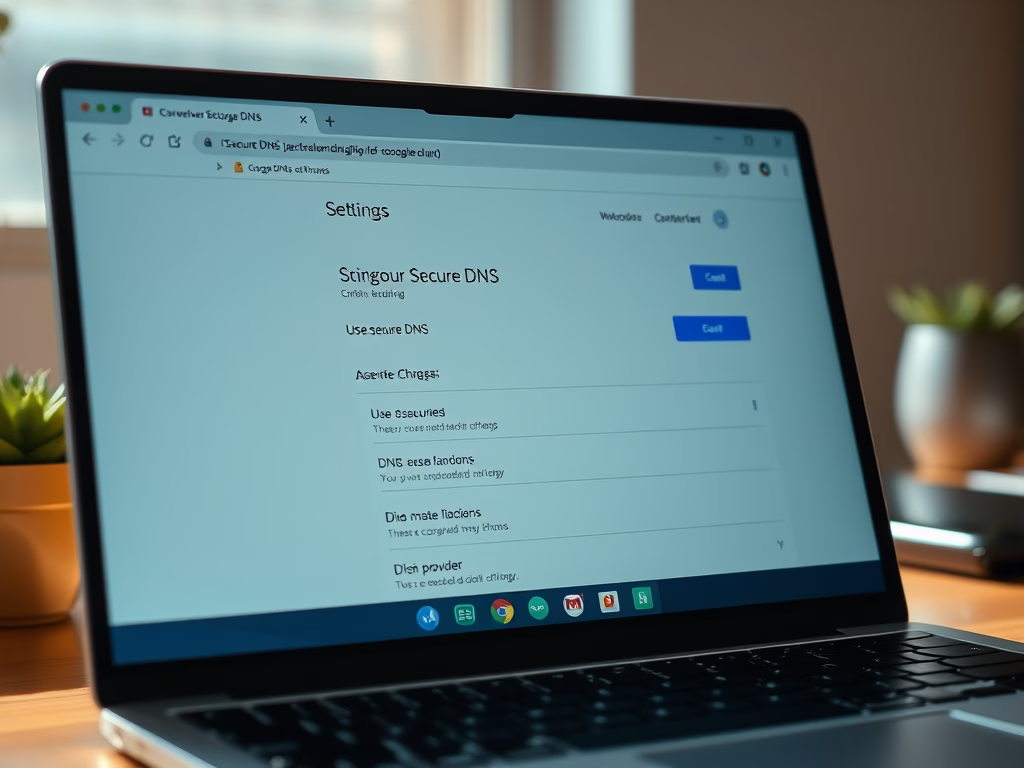

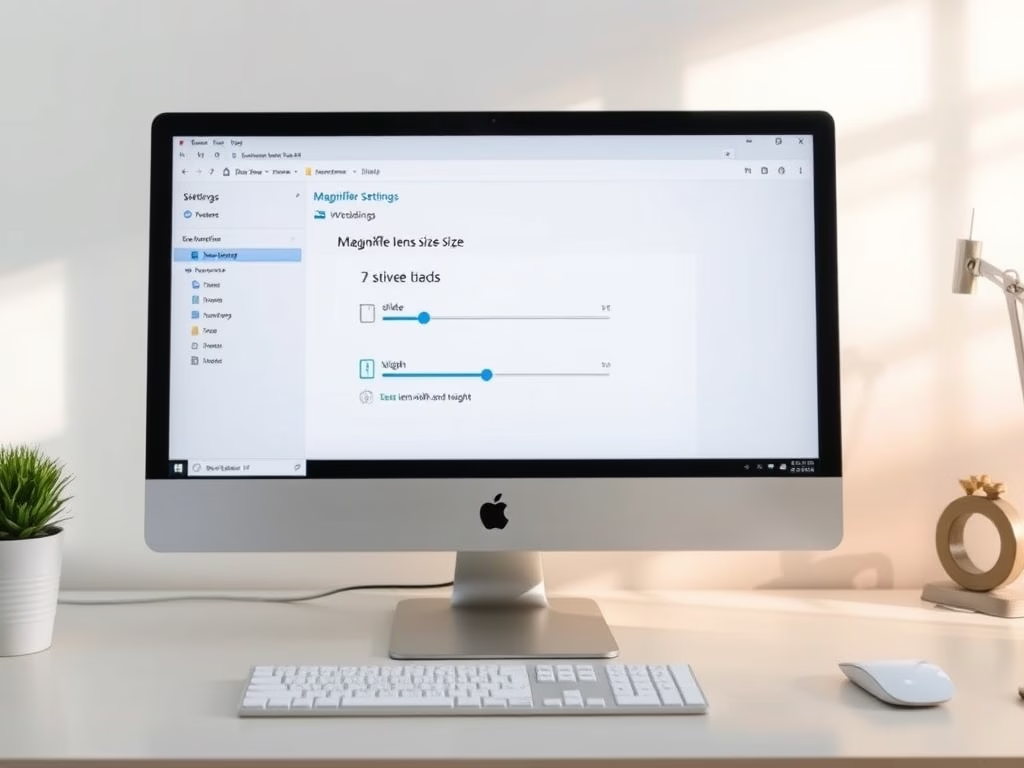



Leave a Reply Cancel reply